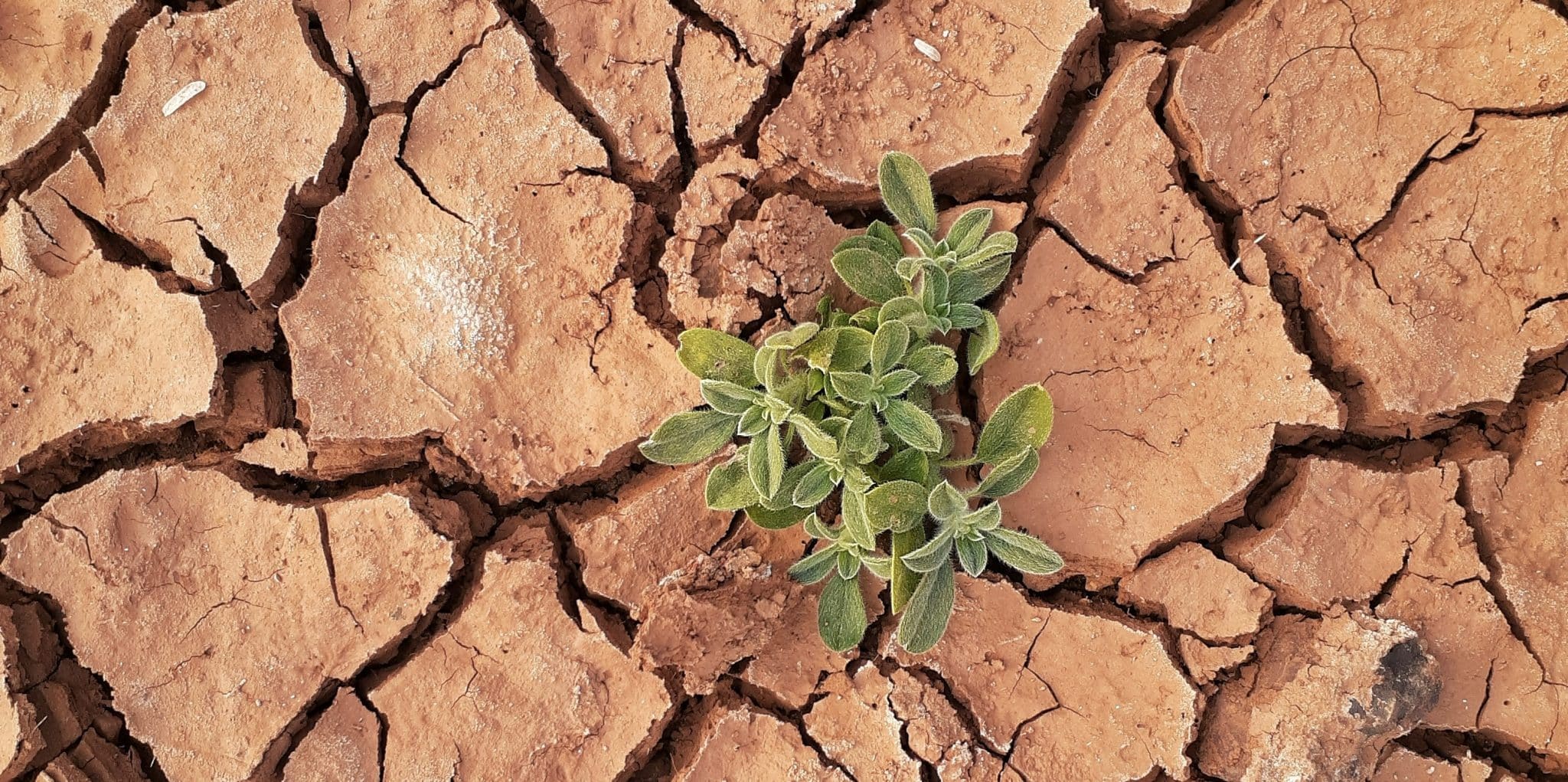The Bible doesn’t talk about global warming and recycling, so what should we do?
This article is published in partnership with The Methodist Church in Singapore.
Rev Dr Andrew Peh // May 13, 2024, 12:00 pm

"To proclaim the Gospel that says ‘Jesus is Lord’ is to proclaim the Gospel that includes the earth, since Christ’s Lordship is over all creation," points out Rev Dr Andrew Peh. "Christ’s work on the cross redeems not only humanity but creation itself." Photo by Renzo d Souza on Unspalsh.
Every Christian aspires to obey God, avoid evil and do good. But some modern day predicaments are not discussed specifically in the Bible. How, then, can we apply biblical principles to our lives?
In this series, The Methodist Church in Singapore shares reflections on its Social Principles which, more than ever before, can help believers live by God’s firm principles in today’s volatile and complex world.
Here, Rev Dr Andrew Peh looks at how the Church can respond to the environmental issues of our day through a biblical lens, by the grace of the Holy Spirit.
In 1945, Albert Einstein, J Robert Oppenheimer and University of Chicago scientists who helped develop the first atomic weapons in the Manhattan Project founded the Bulletin of the Atomic Scientists.
Two years later, in 1947, employing the imagery of the biblical Apocalypse, the Bulletin developed a countdown of the state of the world that inches towards a global “Armageddon” (midnight) in 1947, referred to as the Doomsday clock. In their annual report published in Jan 2024,[1] we are now 90 seconds from midnight on the Doomsday clock.
While there have been various international initiatives to mitigate the effects of anthropogenic climate change (such as the increasing frequency and intensity of wild fires, droughts, hurricanes, floods as well as deforestation, rising sea levels, destruction of biodiversity), there is perhaps a severe deficit of courage and fortitude among the world leaders to address the gravity and the urgency of the effects of climate change.
Not surprisingly, the younger generation is seeing the need to rise up and challenge the norms and hopefully bring about real change in responding to the crisis.
What are our environmental ethics?
Regrettably, evangelical Christianity is complicit in this apathy whenever the issue of caring for creation is raised.
For too long, evangelical Christianity has adopted a “default setting”, where it is all about us. We are at the centre of it all, where the creation mandate is given for humanity to subdue and have dominion, therefore giving us licence to use (and abuse) all that God has created.
Many think that we need only bother with saving souls and everything else is peripheral.
We believe that, at the end of time, this “world will melt like snow” and will be no more and hence we should rightly be concerned only with saving souls instead of saving whales or rhinos.
There are evangelicals who contest the view that global warming and climate change is a direct consequence of human action.
Environmental degradation and climate change are seen as the earth’s natural response rather than a result of human consumerism and greed.
Evangelicals are generally tacit in their views and are complicit in discounting numerous attempts to make conscious efforts in addressing and arresting the speed of global warming.
Sadly, environmental ethics and caring for creation do not seem to resonate, nor does it have relevance among Protestants. In our churches, there are many members who think that the bottom line is that we need only bother with saving souls and everything else is peripheral, perhaps even unnecessary.
It may well be that that is the chief end of the mission of the Church. But is that the chief end of the mission of God?
Creation care – a Gospel issue
As I began researching this area through a survey of the Scriptures, God’s Word is replete with all these references where we cannot ignore creation simply because Christ’s work on the cross redeems not only humanity but creation itself.
Christ’s work on the cross redeems not only humanity but creation itself.
We need to reread the creation mandate in Genesis 1; to respond to the psalmists’ call for creation (yes, in all of God’s splendid creativity) to praise the Lord; to recount as in Jonah 3 that God’s grace is extended impartially to the Ninevites as well as to the animals, contrary to Jonah’s personal preconceptions.
We cannot ignore passages in Romans 8, where Paul wrote that “in hope, that all creation, now groaning, will be liberated from its bondage to decay” and also in Colossians 1, that God “through Christ, is reconciling to Himself all things.”
This is well encapsulated in Lausanne’s Cape Town Commitment:
The earth is created, sustained and redeemed by Christ. We cannot claim to love God while abusing what belongs to Christ by right of creation, redemption and inheritance. We care for the earth and responsibly use its abundant resources, not according to the rationale of the secular world, but for the Lord’s sake.
If God is concerned about creation, should we not also be similarly concerned?
If Jesus is Lord of all the earth, we cannot separate our relationship to Christ from how we act in relation to the earth. For to proclaim the Gospel that says ‘Jesus is Lord’ is to proclaim the Gospel that includes the earth, since Christ’s Lordship is over all creation. Creation care is thus a Gospel issue within the Lordship of Christ.
Such love for God’s creation demands that we repent of our part in the destruction, waste and pollution of the earth’s resources and our collusion in the toxic idolatry of consumerism. Instead, we commit ourselves to urgent and prophetic ecological responsibility.[2]
In this regard, I am heartened by the addition of the Sphere of Creation Care in the revision of the Methodist Social Principles. It is a reminder that we cannot ignore the rest of God’s creation!
While the biblical accounts are inordinately partial to human salvation – the work of saving people from sin and judgement, and that should indeed be an important focus of our partnership with God in His mission – but that is not the whole story of God’s mission and therefore, that should not be our whole story in our mission emphases as well.
If God is concerned about creation, should we not also be similarly concerned?
[1] See https://thebulletin.org/doomsday-clock/current-time/
[2] Lausanne Movement, The Cape Town Commitment, https://lausanne.org/content/ctc/ctcommitment#p1-7
The Methodist Social Principles on the Sphere of Creation Care articulate the response of The Methodist Church in Singapore to the environmental issues that Christians face today. These are not rules, but guidelines drawn from Scriptural and theological foundations as well as Methodist traditions.
Watch this space for the final Methodist Social Principles article on the Church: What does it mean for the Church to be “in the world but not of the world”?
RELATED ARTICLES:
In an age of AI, IVF and NFTs, are Christian social principles still relevant?
In an age of AI, IVF and NFTs, are Christian social principles still relevant?
Family Devotion Day 18: God can use you to change the world!
In an age of AI, IVF and NFTs, are Christian social principles still relevant?
We are an independent, non-profit organisation that relies on the generosity of our readers, such as yourself, to continue serving the kingdom. Every dollar donated goes directly back into our editorial coverage.
Would you consider partnering with us in our kingdom work by supporting us financially, either as a one-off donation, or a recurring pledge?
Support Salt&Light



